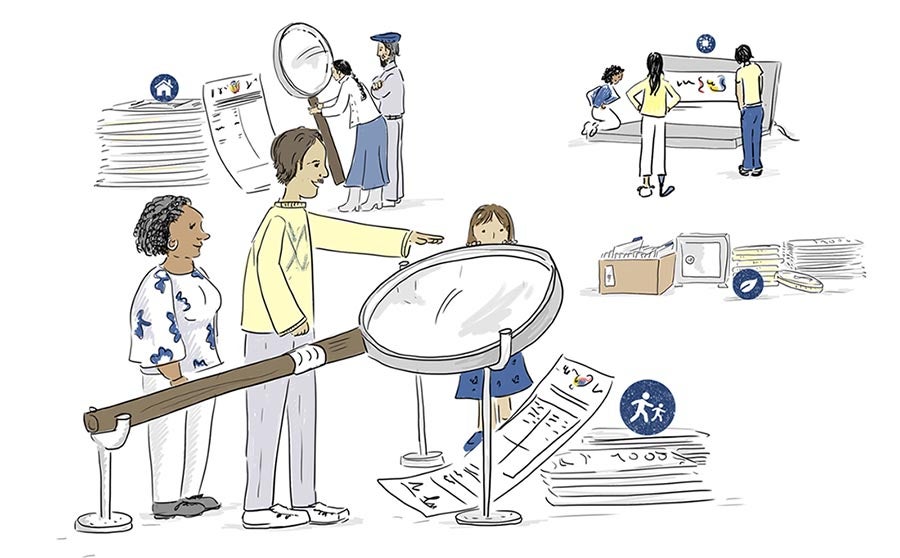There is no doubt that in the Digital Era, the world is moving progressively towards the ideal of perfect information. Technology opens up endless possibilities for information sharing, and as information consumers we naturally crave more and more of it as rapidly as possible.
A key focus of the IDB Group’s Institutional Strategy recognizes an important aspect of this trend. Well-informed citizens serve as a powerful check on public institutions by scrutinizing and demanding knowledge about the allocation of public resources, the results achieved (or not), and, ultimately, whether everyone has equitable access to the same opportunities across the board. Ultimately, the equation “data + technology” constitutes a unique opportunity to exploit access to information to foster greater trust in public institutions.
The IDB, like its institutional peers, has been on a long-standing journey towards improved transparency and accountability as well as more open access to information and data about the projects it supports. The Bank’s central concern for demonstrating results crystallized in organizational changes and continuous improvements to what we do and how we do it. Ultimately this top concern became part of our institutional DNA.
Today we are pleased to see that those institutional changes were fruitful. The IDB has been ranked fifth highest on the 2020 Aid Transparency Index that ranks 47 of the world’s major development providers. The IDB ranked 11th when it started participating in the ranking in 2013 and has improved steadily since then. However, while we are proud of that achievement, we are by no means resting on our laurels.
The Aid Transparency Index, which is the world’s only independent assessment of transparency among major development providers, relies on data reported by over 1,000 organizations through the International Aid Transparency Initiative (IATI). The IDB reports monthly to the IATI on over 1,400 sovereign-guarantee loan operations that we have approved since 2004. The massive volumes of homogenized aid development data creates a tremendous opportunity for closer coordination among development actors across countries, regions and the world.
The 2020 Publish What You Find (PWYF) Report, which is part of the global campaign for aid and development transparency, notes that a key challenge going forward is to move from data use to data engagement. That means leveraging the increasingly higher data quality in the IATI registry, continuously expanding the scope of the reporting by organizations to the platform, and striving to reach the full potential of this tool to build greater trust and empowerment among local actors. There is a lot of substantive work ahead of us.
Improving transparency and accountability is a sprint, not a marathon. We are in a highly competitive and fast-paced environment in which transparency is a core value for our peer development institutions. The IDB needs to continue sprinting at a steady clip to make sure we maintain adherence to high international standards such as those of the IATI and PWYF. The race is on, ongoing, and far from over.


Leave a Reply